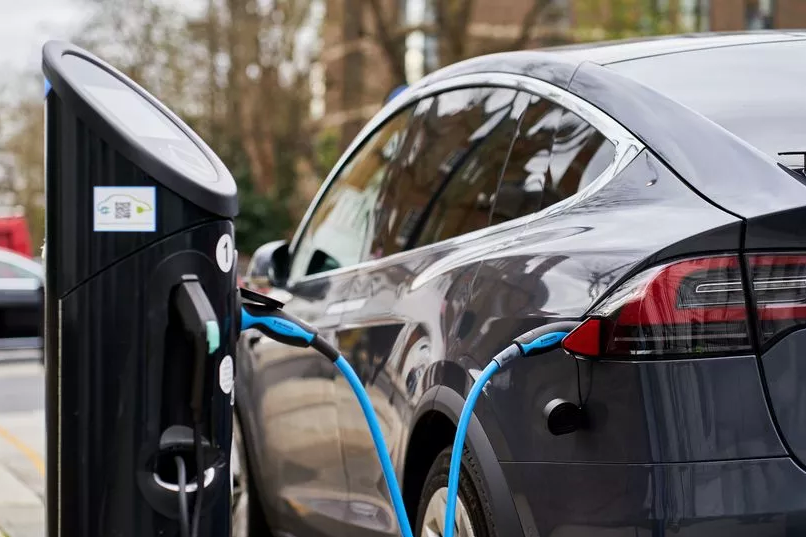How to choose the right home charging station?
Congratulations! You’ve made up your mind about buying an electric car. Now comes the part that’s specific to electric vehicles (EV)s: choosing a home charging station. This can seem complicated, but we’re here to help!
With electric cars, the process of charging at home looks like this: you arrive home; hit the car’s charging port release button; step out of the car; grab the cable from your (soon-to-be) new home charging station a few feet away and plug it in the car’s charging port. You can now go inside and enjoy the coziness of your home as your vehicle completes a charging session in tranquility. Tad-ah! Who ever said electric cars were complicated?
Now, if you’ve read our Beginner’s Guide to Electric Cars: How to charge at home, you’re now up to speed about the benefits of equipping your home with a level 2 charging station. There are different models and features to pick from, so we’ve prepared this handy guide to help you choose the right home charging station.
Before you start, here’s a fun fact that will make it easier to find the perfect home charging station to match your new vehicle:
In North America, every electric vehicle (EV) uses the same plug for level 2 charging. The only exception is Tesla cars which come with an adapter.
Otherwise, whether you chose to drive Audi, Chevrolet, Hyundai, Jaguar, Kia, Nissan, Porsche, Toyota, Volvo, and so on, electric cars sold in North America use the same plug—the SAE J1772 plug to be exact—to charge at home with a level 2 charging station. You can learn more about this in our guide How To Charge Your Electric Car With Charging Stations.
Phew! You can now be sure that any level 2 charging station you pick will be compatible with your new electric car. Now, let’s get started with choosing the right home charging station, shall we?
Choosing where to put your home charging station
1. Where do you park?
First, think about your parking space. Do you usually park your electric car outdoors or in your garage?
The main reason why this is important is that not all home charging stations are weather-proof. Among the units that are weather-proof, their levels of resistance will also vary depending on how extreme the climate is.
So, if you live in a region that exposes your EV to icy winter conditions, heavy rain or strong heat for example, make sure to choose a home charging station that can handle these types of extreme weather conditions.
This information can be found in the specifications and details section of each home charging station displayed in our store.
On the topic of extreme weather, choosing a home charging station with a flexible cable is the best option to manipulate it in colder climates.
2. Where will you install your home charging station?
Speaking of cables, when choosing a home charging station; pay attention to the length of the cable that comes with it. Each level 2 charging station has a cable that varies in length from one unit to another. With your parking space in mind, zoom in to the exact location where you plan on installing the level 2 charging station to make sure that the cable will be long enough to reach your electric car’s port!
For example, the home charging stations available in our online store have cables that range from 12 ft to 25 ft. Our recommendation is to choose a unit with a cable that is at at least 18 ft long. If that length isn’t sufficient, look for home charging stations with a 25 ft cable.
If you have more than one EV to charge (lucky you!), there are mainly two options. First, you could get a dual charging station. These can charge two vehicles simultaneously and need to be installed somewhere where the cables can plug into both electric cars at the same time. The other option would be to purchase two smart charging stations (more on that later) and install them on a single circuit and link them. Although this gives you more flexibility with the installation, this option is generally more expensive.
Matching your home charging station to your lifestyle
Which home charging station will charge your electric car the fastest?
Finding out which home charging station offers the fastest charging speed is a popular topic among new EV drivers. Hey, we get it: Time is precious and valuable.
So let’s cut to the chase—there’s no time to lose!
In short, no matter which model you choose, the selection of level 2 charging stations available on our online store and in general, across North America, can charge a full EV battery overnight.
However, EV charging time is dependent on a host of variables such as:
Your EV’s battery size: the bigger it is, the longer it will take to charge.
Your home charging station’s max power capacity: even if the vehicle on-board charger can accept a high power, if the home charging station can only output less, it will not charge the vehicle as fast as it can.
Your EV’s on board charger power capacity: it can only accept a maximum power intake on 120V and 240V. If the charger can supply more, the vehicle will limit the charging power and affect the time to charge
Environmental factors: a very cold or very hot battery can limit the max power intake and thus affect charging time.
Among these variables, the charging time of an electric car comes down to the following two: the power source and the vehicle’s on board charger capacity.
Power source: As mentioned in our handy resource A Beginner’s Guide to Electric Cars, you can plug in your EV to a regular household plug. These give 120-volt and can take over 24 hours to deliver a full battery charge. Now, with a level 2 charging station, we increase the power source to 240-volt, which can deliver a full battery charge in four to nine hours.
EV on board charger capacity: The cable that you plug into an electric car directs the power source of electricity to the EV charger in the car that converts the AC electricity from the wall into DC to charge the battery.
If you’re a numbers person, here’s the formula for charging time: total charging time = kWh ÷ kW.
Meaning, if an electric car has a 10-kW on board charger and a 100-kWh battery, you can expect it to take 10 hours to charge a fully depleted battery.
This also means that even if you equip your home with one of the most powerful level 2 charging stations—such as one that can provide 9.6 kW—most electric cars won’t charge any faster.
Post time: Oct-26-2023

 Portable EV Charger
Portable EV Charger Home EV Wallbox
Home EV Wallbox DC Charger Station
DC Charger Station EV Charging Module
EV Charging Module NACS&CCS1&CCS2
NACS&CCS1&CCS2 EV Accessories
EV Accessories

